Mujaddid IOS Centre for Arts and Literature organizes discussion on the book “Dr Mohammad Manzoor Alam: Unkahi Kahani (Insaf, Shumuliat Aur Barabri Ki Jidd-o Joh'd)”
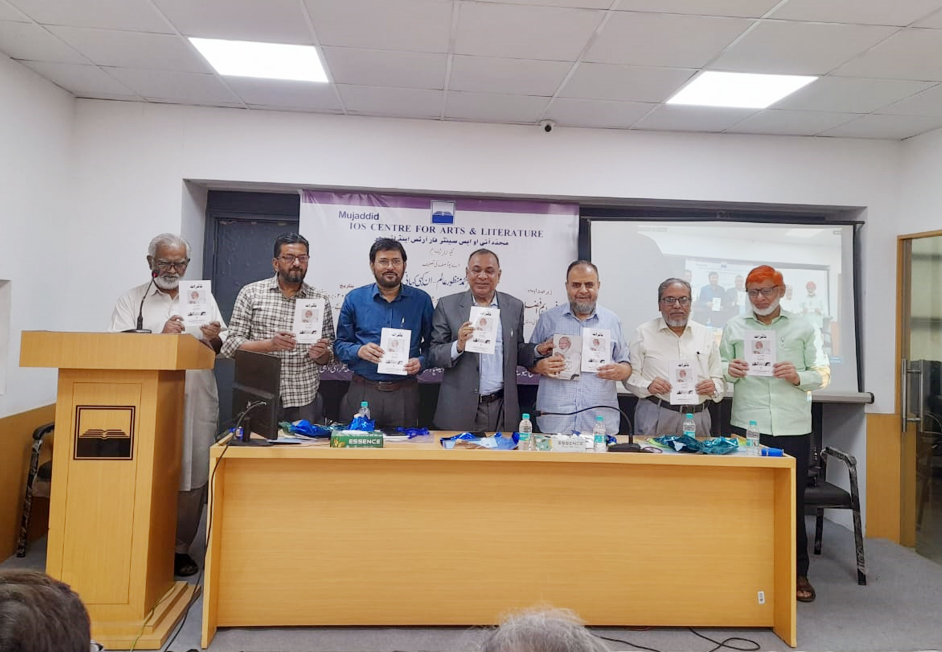
Mujaddid IOS Centre for Arts and Literature organizes discussion on the book “Dr Mohammad Manzoor Alam: Unkahi Kahani (Insaf, Shumuliat Aur Barabri Ki Jidd-o-Joh'd)”
New Delhi: A discussion on the book “Dr Mohammad Manzoor Alam: Unkahi Kahani (Insaf, Shumuliat Aur Barabri Ki Jidd-o-Joh'd)”, written by the senior journalist, A.U. Asif, was organised by the Mujaddid IOS Centre for Arts and Literature at the IOS conference hall on August 17, 2024.
It may be recalled that Dr. Mohammad Manzoor Alam is the founding chairman and chief patron of the Institute of Objective Studies. The book, published by Genuine Publications & Media Pvt. Ltd., focuses on his life and contribution to the promotion of constitutionalism, federalism and the uplift of socially and economically backward sections of society.
The function began with the recitation of a Qur’anic verse by Mr. Mansoor Ahmad.
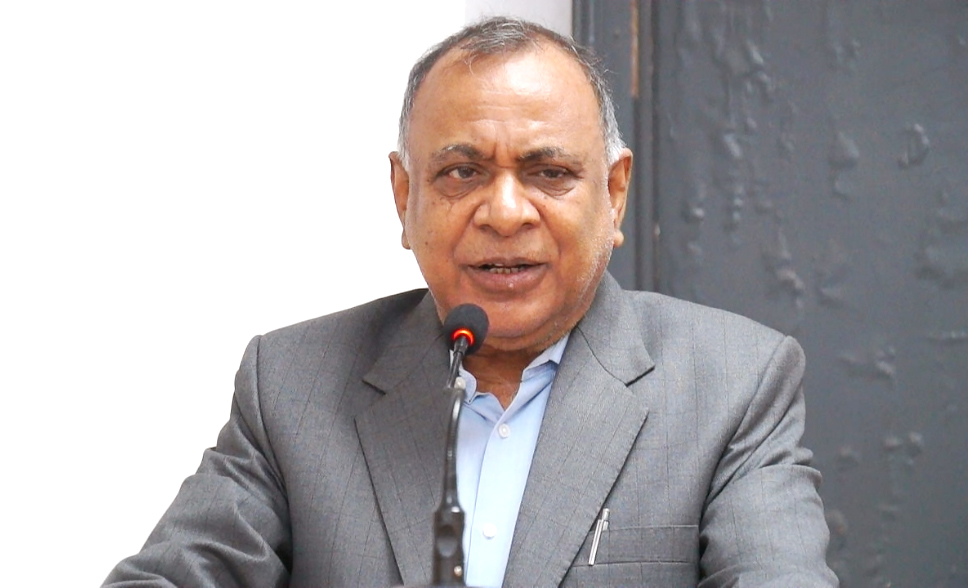
Introducing the book, Mr. A.U. Asif said that the book was based on a personality who devoted his life to promote objectivity. He drew a parallel between the book profiling the life sketch of Sir Syed Khan and the present book focusing on Dr. Manzoor Alam’s journey of life. While the former was written by Khwaja Altaf Husain Hali, the latter was authored by him. Hali also wrote on the celebrated Urdu poet, Mirza Ghalib. He noted that writing a book for him was a challenge as well as an adventure. He said he has been writing since very early age and so far worked on 1000 personalities. He also wrote in the defunct Hindi Weekly Dharmyug and Hindustan. It took him 10 or 11 years to plan the book. Claiming that the book was of a different type, he said that not many books had been written in the lifetime of a personality. Referring to his first encounter with Dr. Alam, he said that Dr. Sanaullah who was a doctor by profession and lived in USA once told him that he (Dr. Alam) became popular in Aligarh Muslim University. Dr. Sanaullah came to know of this fact while travelling from Aligarh. Dr. Alam was keenly interested in knowing the world, the country and its burning issues, he added.
Mr. A.U. Asif said hundred personalities have given their opinion about Dr. Manzoor Alam, and all of them have been included in the book. Fifty others have also written about him. Besides, 16 scholars are from outside the country who expressed their views on him. These include Dr. Ahmed Totonji and Prof. Omar Hasan Kasule. Twenty others include the ex-vice president of India, Dr. Hamid Ansari and the ex-chief justice of India, the late Justice A.M. Ahmadi. One hundred and one persons shared their opinion on the personality and other aspects of the life of Dr. Alam. The late Qazi Mujahidul Islam, ex-general secretary of the All India Milli Council and the late Amin Usmani, Secretary, Islamic Fiqh Academy (IFA) had a high opinion about him. He held that it was a difficult task to persuade Dr. Alam to talk about himself. But this was made possible only after he had several sittings with him. Commenting on his brief visit to the United States of America at a time when 9/11 incident took place, he said that Dr. Alam was invited to speak on it in a nearby mosque. Incidentally, it was Friday that day. In his speech, he warned the U.S. against violence. Senior journalist, Mr. Santosh Bhartiya, in his latest book wrote that Dr. Alam did not offer politics as a subject in post-graduation because his teacher disliked the subject. He took a cue from his teacher and did not offer politics in higher studies. Instead, he chose Economics as a subject of study. He concluded that the book did not look like a biography.
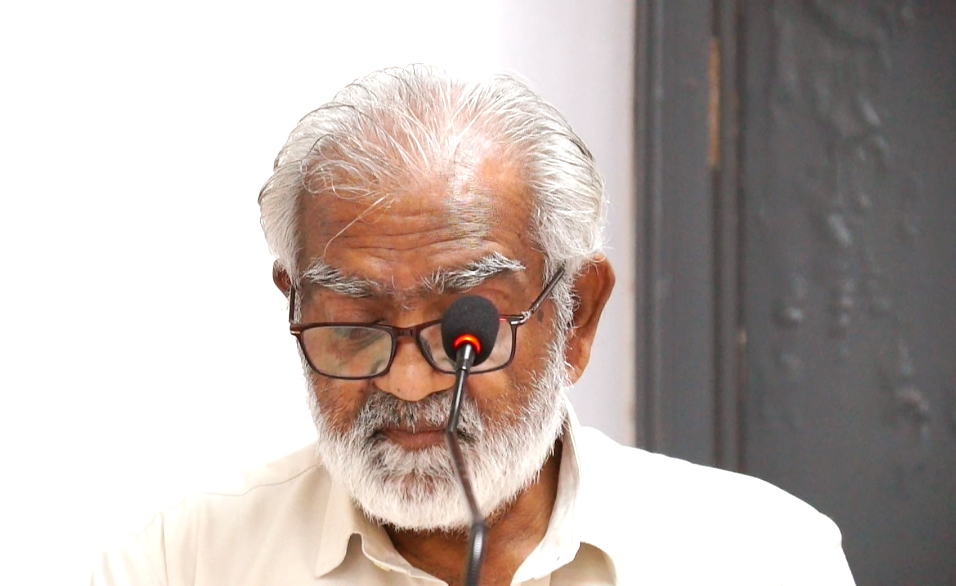
Convener of Mujaddid IOS Centre for Arts and Literature, Mr. Anjum Naim drew a parallel between the prominent Muslim leader, Syed Shahabuddin and Dr. Manzoor Alam. Both of them ceaselessly worked towards the establishment of Muslim identity. Dr. Alam firmly believed that no ill was beyond treatment. That is why he focused on research and thought in the IOS. He is an ardent supporter of dialogue and mutual understanding among different religions. Keeping this in view, he brought several institutions on one platform. Ta’assuraat, a small booklet as a supplement to the main book was also released on the occasion.
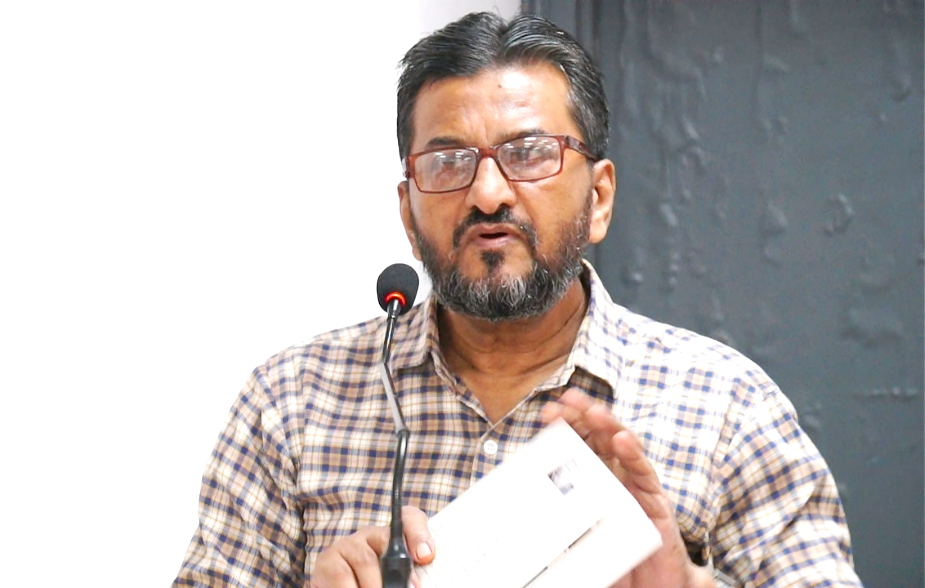
Mr. Arif Iqbal, the editor of the ‘Urdu Book Review’, described the biography of Dr. Alam as a research work done by a research scholar. The Sirah of the Prophet (PBUH) is another biography that is in circulation for hundreds of years. He said that the biography penned by Mr. A.U. Asif was a multi-faceted work which was no less than a precious gift to the readers. Journalist, Dr. Ishrat Zaheer narrated a story about Dr. Alam in which he quarreled with his grandfather over a Dalit boy of his village. He disagreed with his grandfather and defended the Dalit boy. With the passage of time, his concern for depressed and deprived sections grew and he came out in support of these sections. Senior Urdu journalist and writer, Mr. Ahmad Javed said that he and Dr. Alam belonged to the same area in Bihar. His native village was about 15 kilometers away from his hamlet. Referring to his idiosyncrasies, he held that Dr. Alam was blessed with the power of tolerance, firm belief and determination. He knew very well of the value and the punctuality of time. He noted that biography writing was an art. He termed it as the finest profile book. It detailed Dr. Alam’s concern for the country and the Muslim community. He said that the pages of the book were worthy of emulation for the people like him. They were also indicative of the lessons to learn. He maintained that more often than not, people conceded defeat very easily when confronted with obstacles. “Easiness always brings comfort and happiness quickly, but the hurdles are very disappointing”. He said we think and make plans, but when it comes to translating them into action, they deter us because of the lack of strong will, efforts and consistency. If one analysed the history of the world from East to the West and peeped into the lives of various personalities, he would find that they were similar to Dr. Manzoor Alam. Dr. Alam was the living symbol of strong will and an urge to do something tangible. He said that Dr. Alam was a strong link between the academic institutions of the Islamic world.
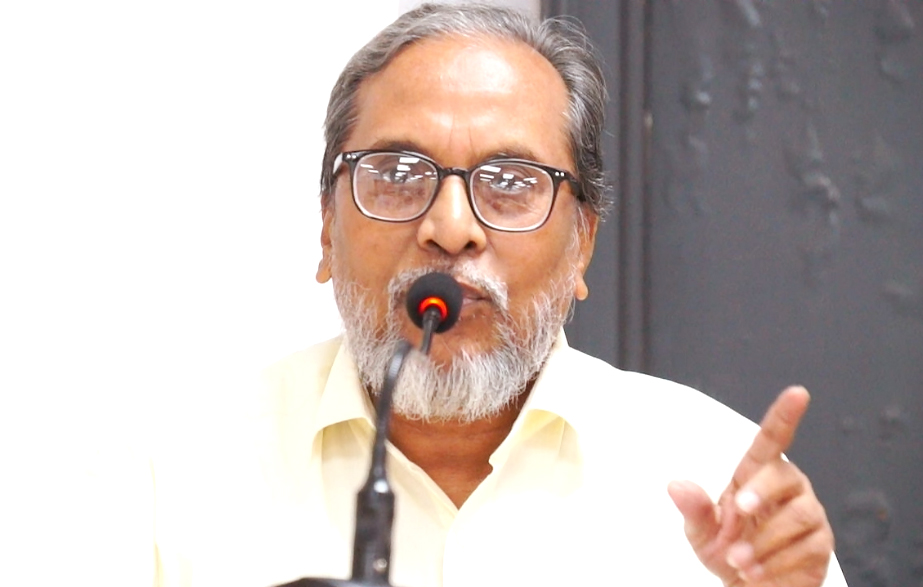
Senior Urdu journalist and a representative of the Voice of America (Urdu service) in India, Mr. Suhail Anjum, said that everyone who wanted to do something positive in life should read this book. He observed that this was a long-awaited book. There were so many facets of his life which were inspiring for those who wished to do something concrete for the well-being of humanity, he added. Journalist, Mr. Javed Iqbal held that Dr. Alam endured extra-ordinary passion to do something as an ‘odd man out’. Nothing worthwhile was possible with strong passion, he said. Ibne Saud from Chennai stated that he knew Dr. Alam since 1979. He used to meet him while in Delhi. He had been constantly in touch with him. Ex-editor of Urdu magazine ‘Aajkal’, Dr. Abrar Rahmani, shared his views on the life and work of Dr. Alam. Mr. Iqbal Patni from Gujarat said that he was always by his side whenever Dr. Alam paid a visit to Gujarat. The Chief of Editor of Millat Times, a digital newspaper, Shams Tabrez Qasmi threw light on various aspects of Dr. Alam’s life and his contributions. Mufti Nadir Qasmi from the Islamic Fiqh Academy said that Dr. Alam’s life was worthy of emulation. Social activist, Abdul Mannan recounted his qualities as a true human being.
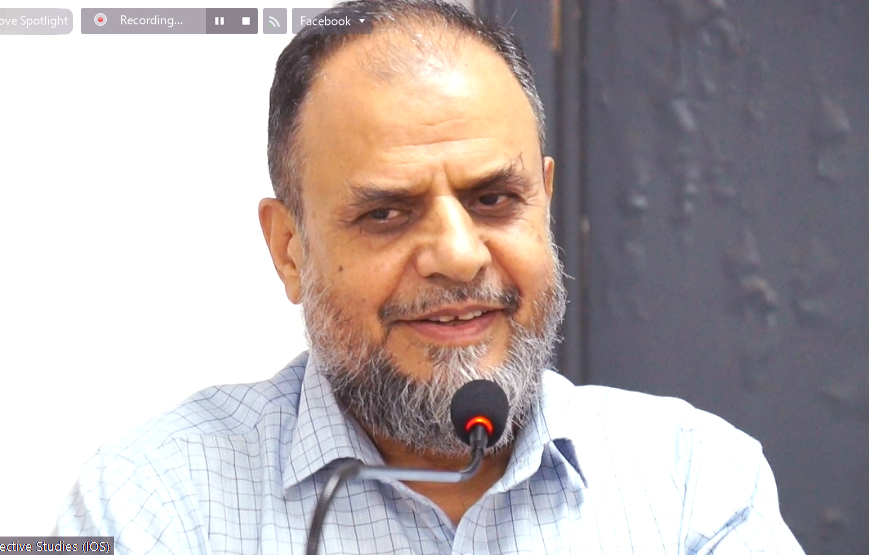
In his presidential remarks, the Chairman of the IOS, Prof. M. Afzal Wani, praised Mr. A.U. Asif for authoring a book on a person who devoted his entire life for the cause of objectivity. He wanted to know how many people understood what the objectivity was. In this connection, he referred to the name of Prof. Upendra Baxi who taught law at Delhi University and stood for objectivity. He said that the personality of Dr. Manzoor Alam is identified with a thought that wanted to reach out to every individual. He said we pay more attention to the structure than the thought behind the work, whereas the real stimulant to a work is the thought. But the tragedy of our time is that the thought is not explored. He held that many books were being printed every year, but have no readers. He said that the success of this book would depend on the extent to which Mr. A.U. Asif conveyed the message to readers. The importance of the book should be seen from that prism. We have to come up to that level. Any delay in this task will create problems, he noted.
Prof. Wani pointed out that Muslims were millionaires and they could have created 10 universities like the AMU. But since they did not have the thought, this could not become possible. Thus what was important was the spirit behind the work. He said that there was no emphasis on thought in the Muslim community. We must see what we are giving to the community. Here comes the need for objectivity. If one is institution-builder, he must keep this in mind. Referring to the contribution of Dr. Manzoor Alam, he said that he worked for better education, equal opportunities, constitutionalism and federalism. He headed India’s best think-tank. If one sought a person who understood economy, geo-politics and religious studies then he would find only one person. And he is none else but Dr. Manzoor Alam. He gave expression to thought, Prof. Wani concluded.
Mr. Anjum Naim conducted the proceedings and proposed a vote of thanks to those who attended the function.
A view of audience
Go Back